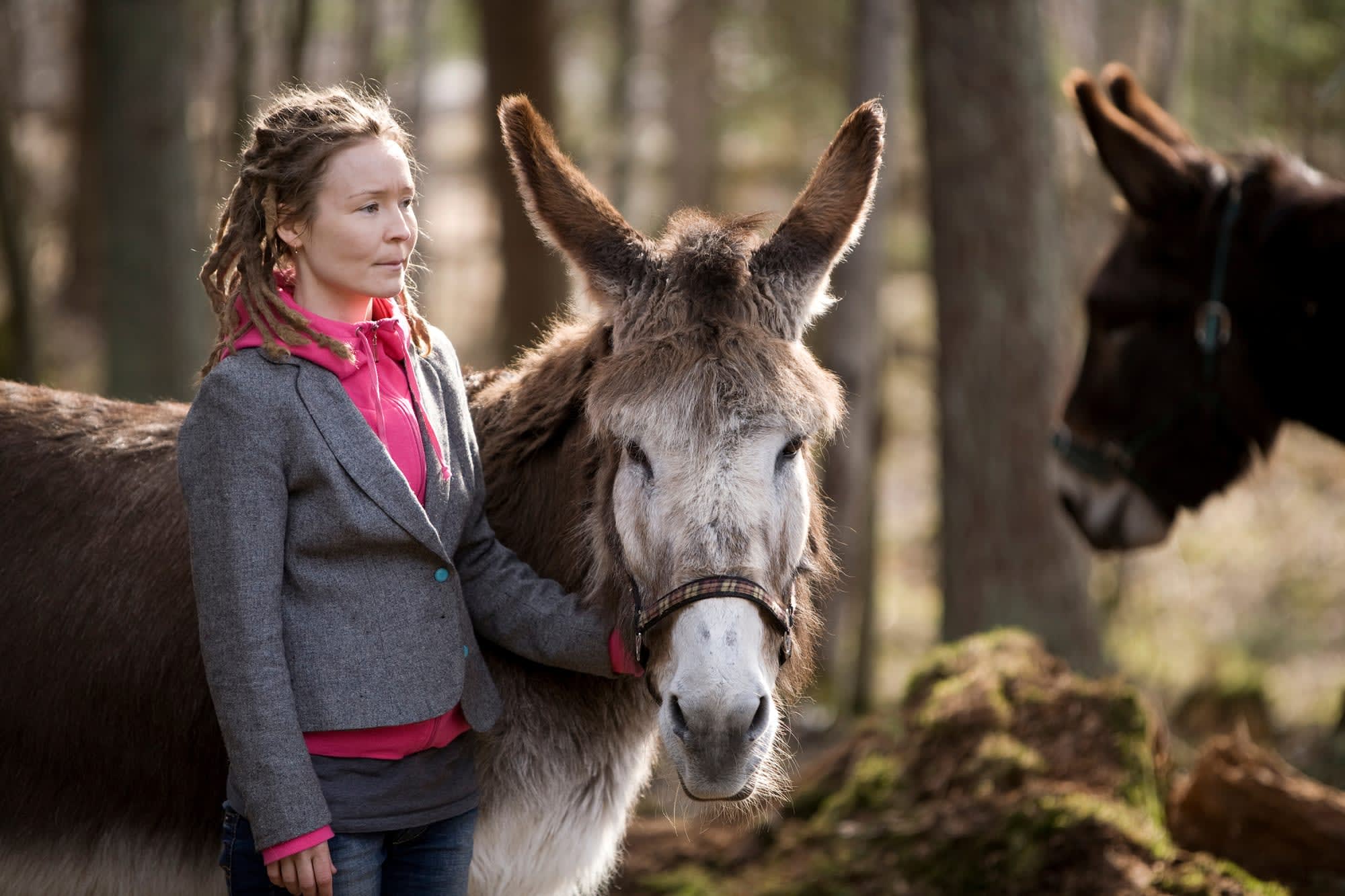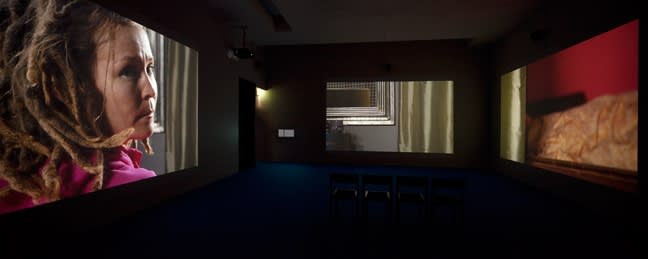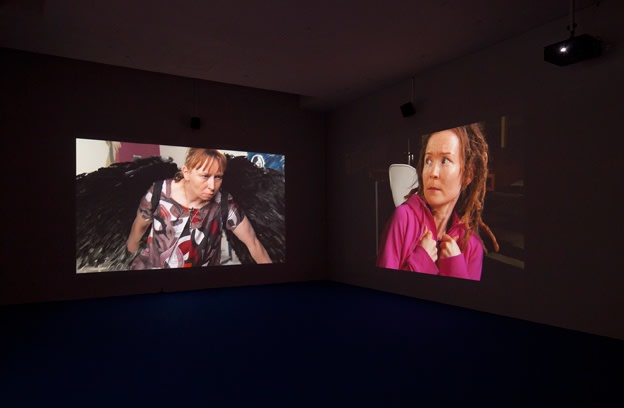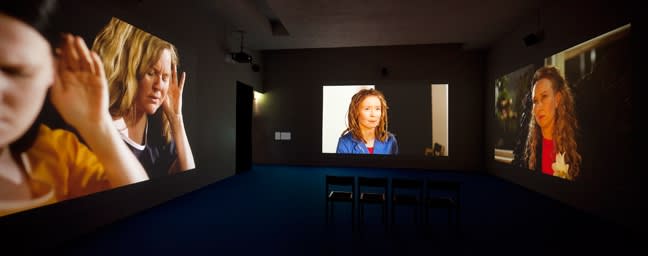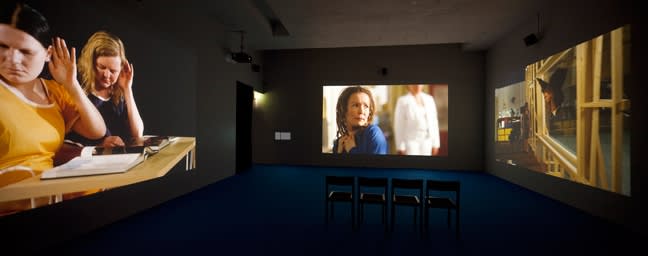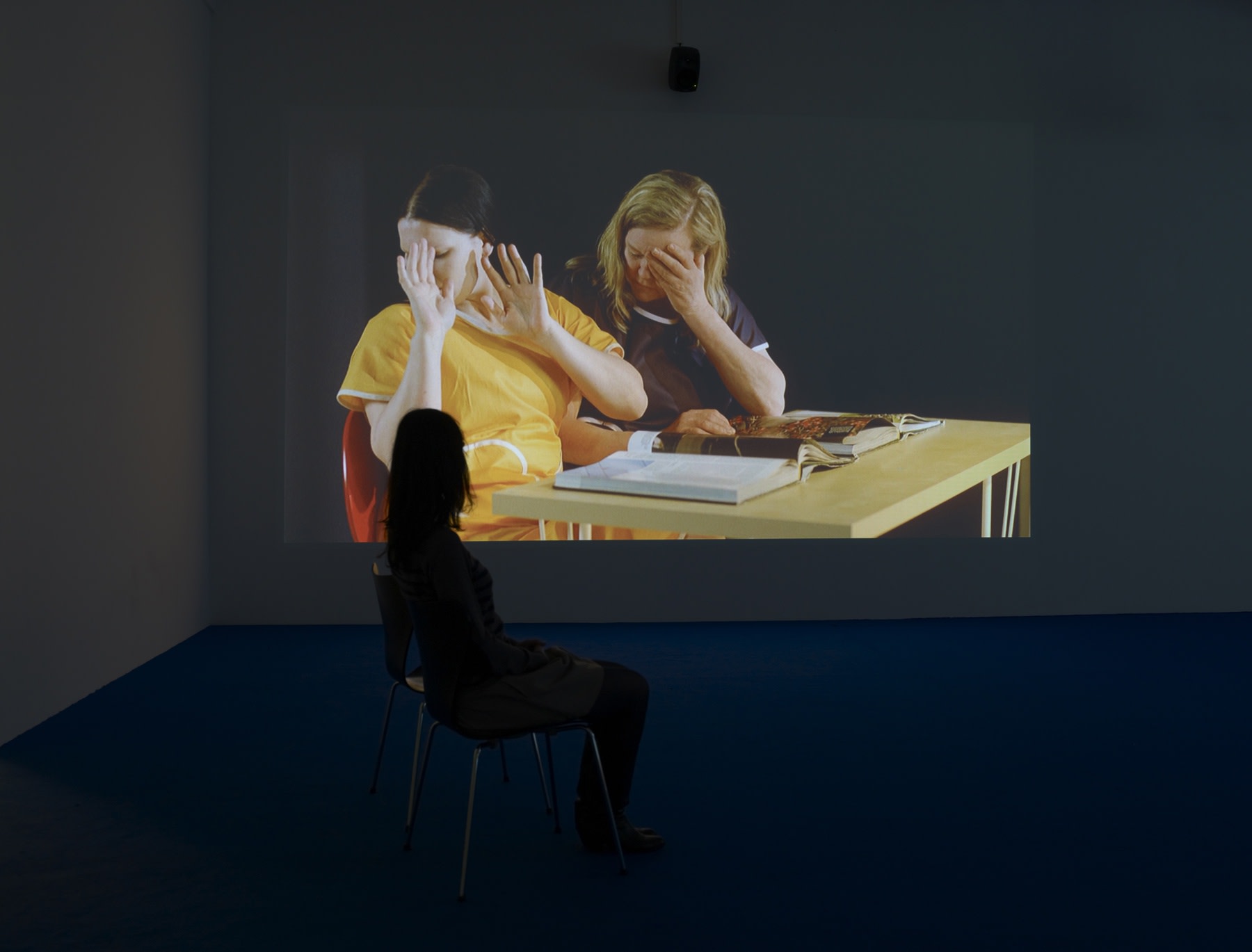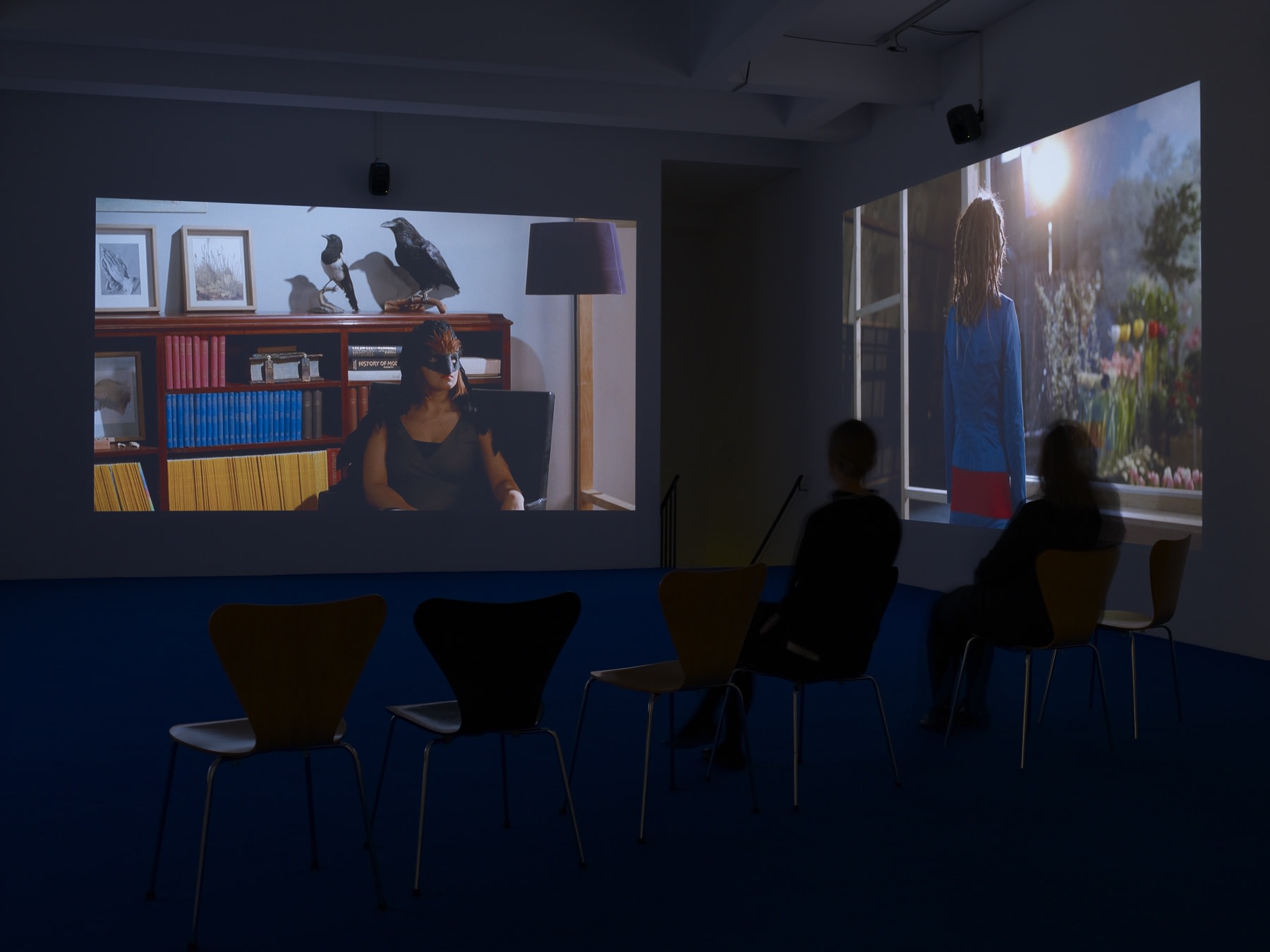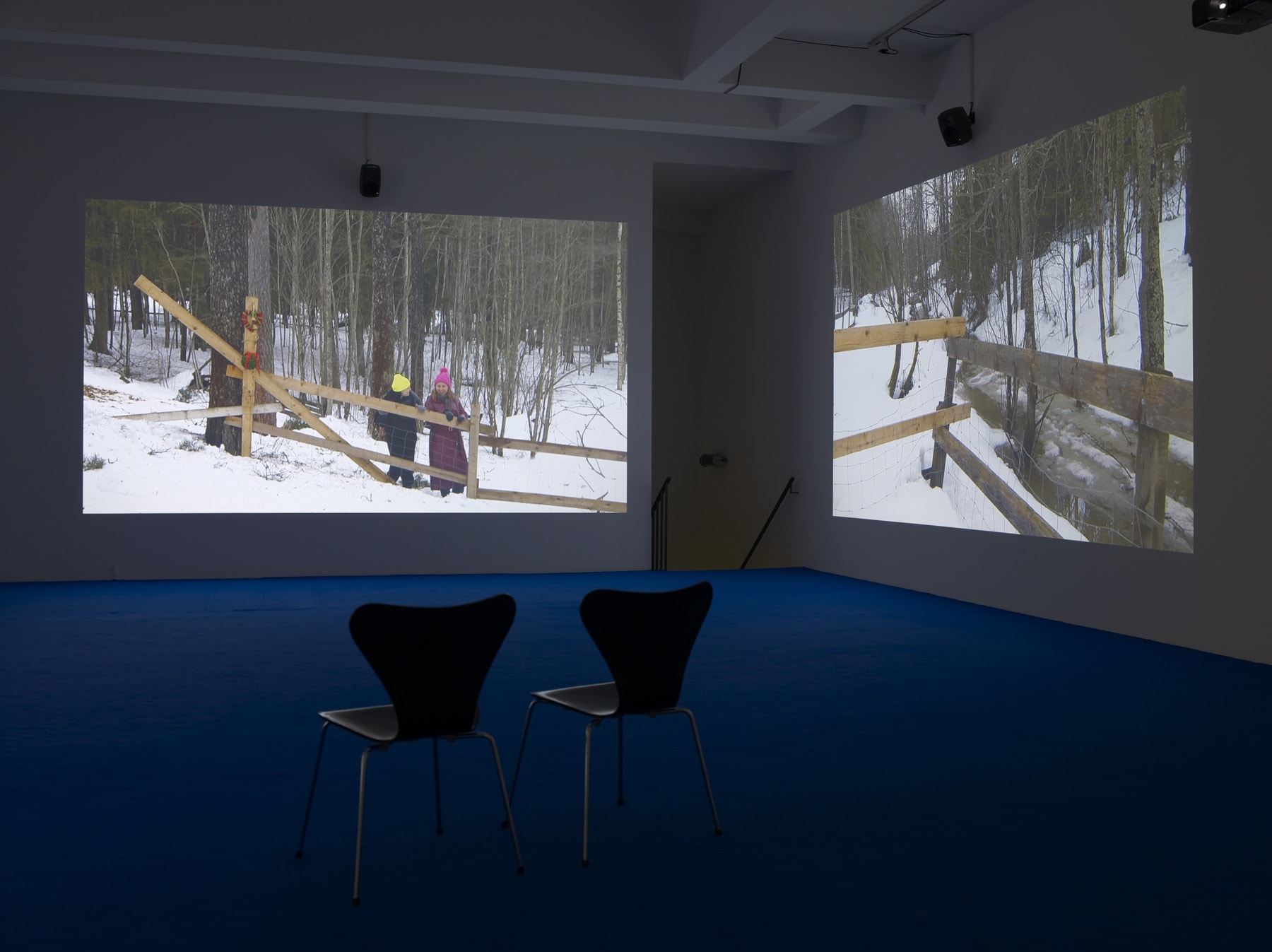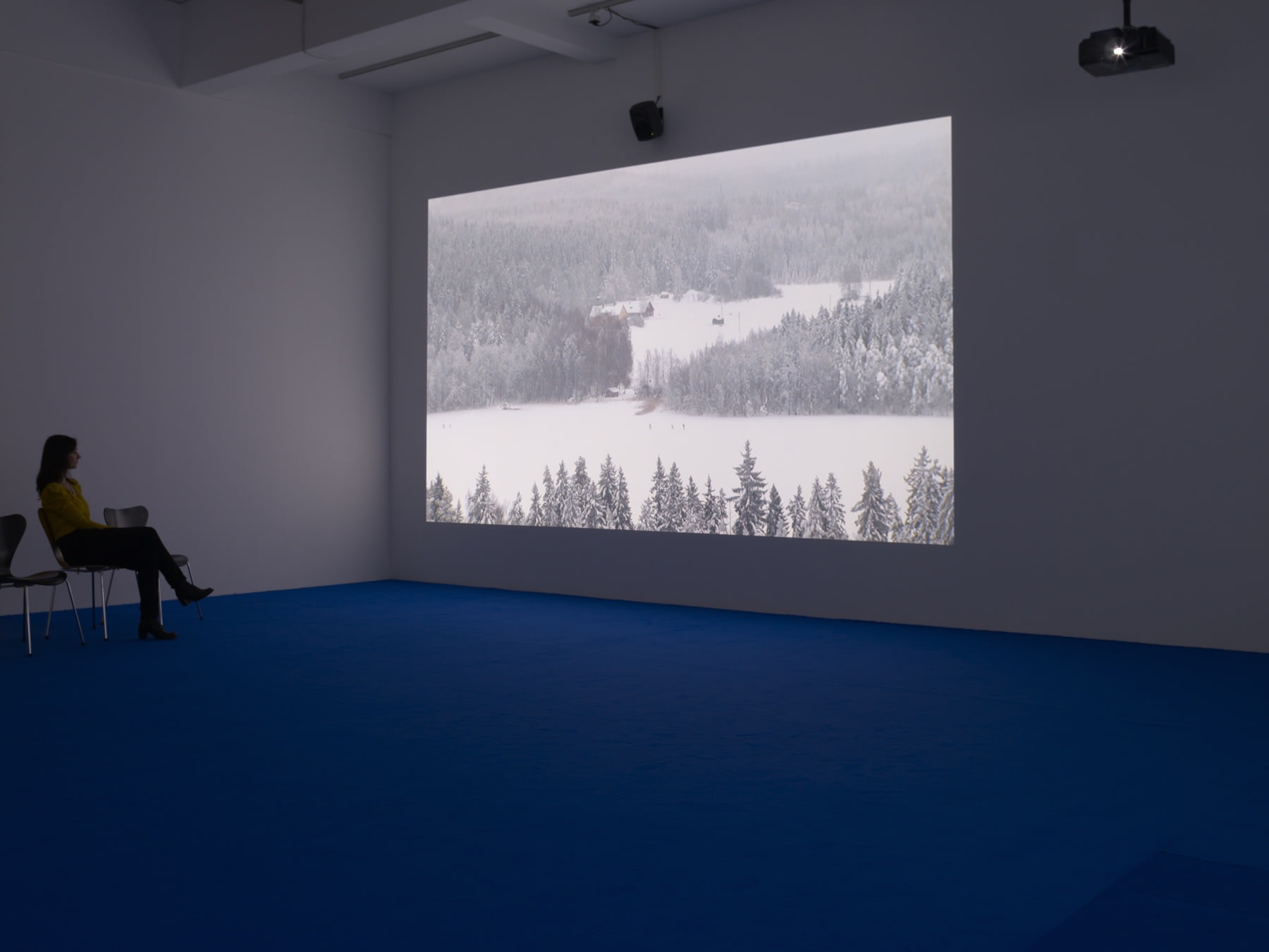Overview
The Annunciation is an installation in which one of the central motifs of Christian iconography is constructed and re-enacted through the moving image. It is based on the narrative from the Gospel of Luke (1:26-38) and paintings of the Annunciation in which artists have, in various periods, depicted their visions of the gospel’s events.
Eija-Liisa Ahtila: The Annunciation
4 December - 8 January 2011
4 December - 8 January 2011
The Annunciation is an installation in which one of the central motifs of Christian iconography is constructed and re-enacted through the moving image. It is based on the narrative from the Gospel of Luke (1:26-38) and paintings of the Annunciation in which artists have, in various periods, depicted their visions of the gospel’s events.
In this Annunciation the events are set in the present. The installation, of three projected images, consists of material made during the film’s preparation and the actual reconstruction of the event. The film material was shot mainly during the frosty winter season of 2010 in the snowy Aulanko nature reserve in southern Finland and on a set depicting the artist’s studio and the scene of the Annunciation. All the actors, apart from two, are non-professionals and attend the Helsinki Deaconess Institute for women’s support services. Although based on an existing script, the events, roles and dialogue were adapted during filming in accordance with each actor’s individual presence.
A viewpoint to the Annunciation is Jacob von Uexkull’s idea that living beings’ different worlds exist simultaneously. This idea provides an approach to the nature of a miracle and the possibilities of perception and knowledge.
Extract from A Stroll through the Worlds of Animals and Men, Jakob von Uexküll (1957):
"We are easily deluded into assuming that the relationship between a foreign subject and the objects in his world exists on the same spatial and temporal plane as our own relations with the objects in our human world. This fallacy is fed by a belief in the existence of a single world, into which all living creatures are pigeonholed. This gives rise to the widespread conviction that there is only one space and one time for all living things. Only recently have physicists begun to doubt the existence of a universe with a space that is valid for all beings. ”
Extract from The Annunciation, the narrator’s voiceover:
"For something to get started, one must merely begin and connect with a thing that isn't yet - as far as one knows, at least. And to write more about it. How does one know what things are, unless they're already familiar? What does one know of them at that stage? How do such things exist? How to get next to them and engage in dialogue - on what and in whose language? One instinctively approaches such things through the familiar, the known - at times with such precision and force that one can see from a single angle only, in one direction, all things in a clear order - one thing in front, another just behind it, and so on - in perspective. Can something already familiar fulfill the criteria for a miracle? Can one be shaken with surprise by something one knows through and through? What does one see then? Perhaps one encounters a question, which one cannot understand. Or an image of something that begins to puzzle the mind. They are displayed somewhere, where they can be discovered, and then one waits to see who comes to look at them. And how they look at them. "
